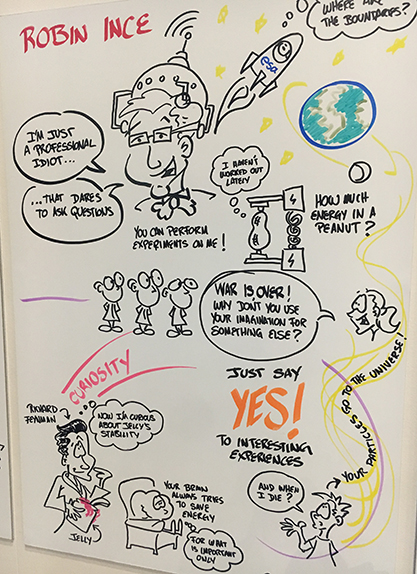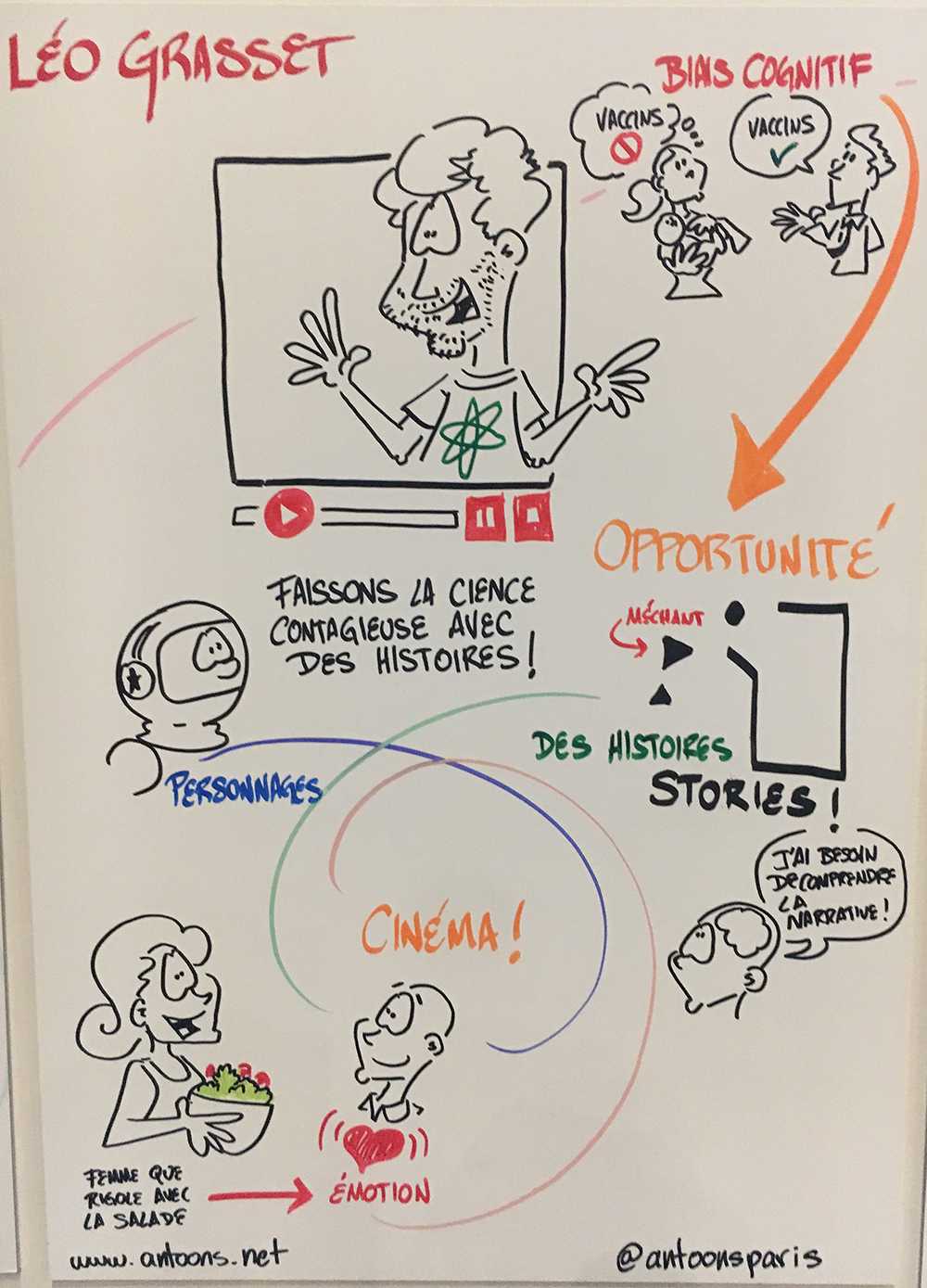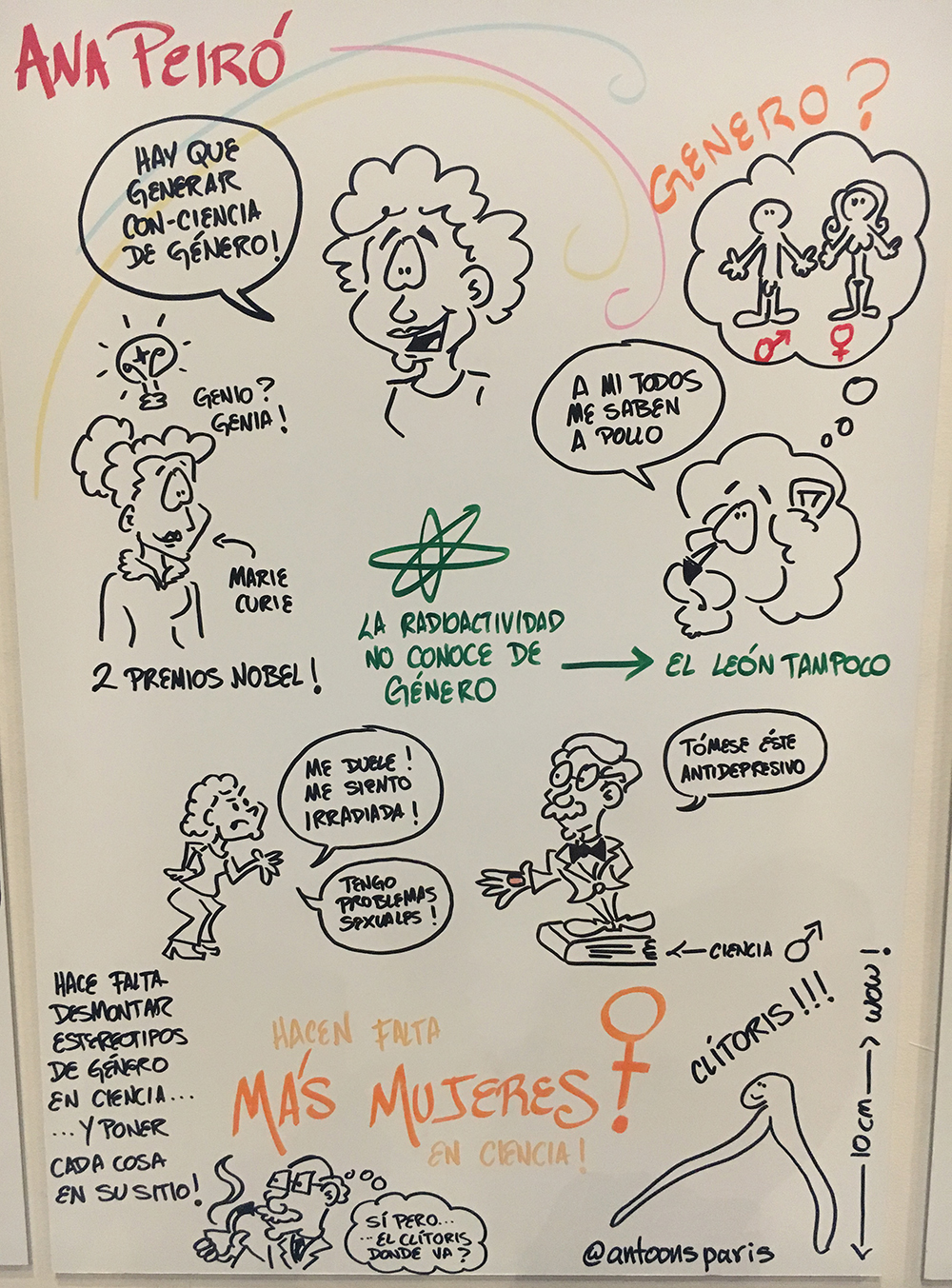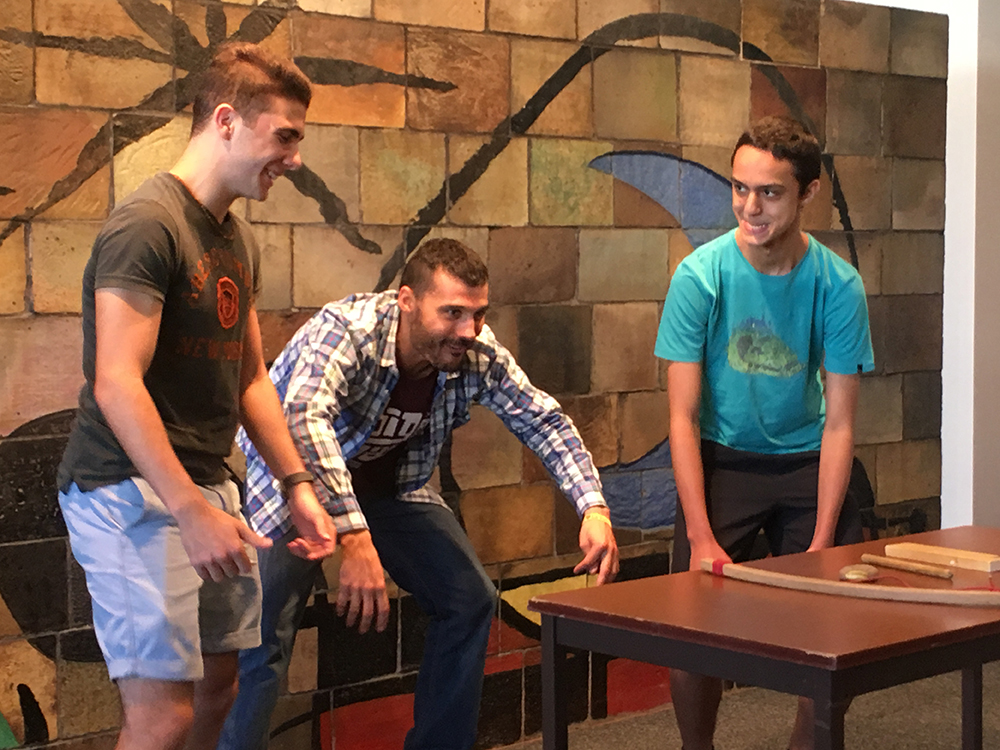More than 150 delegates from 22 countries and representatives from 50 international delegations from UNESCO met in Paris on the 14th and 15th of June to share, reflect and discuss about the combination between science teaching and learning and performing arts.
Jointly with the professionals from the field of research, teaching and science communication who took part in the conference, young students from Spanish, English and French schools joined the PERFORM Conference.
The participation of over 200 students from secondary schools was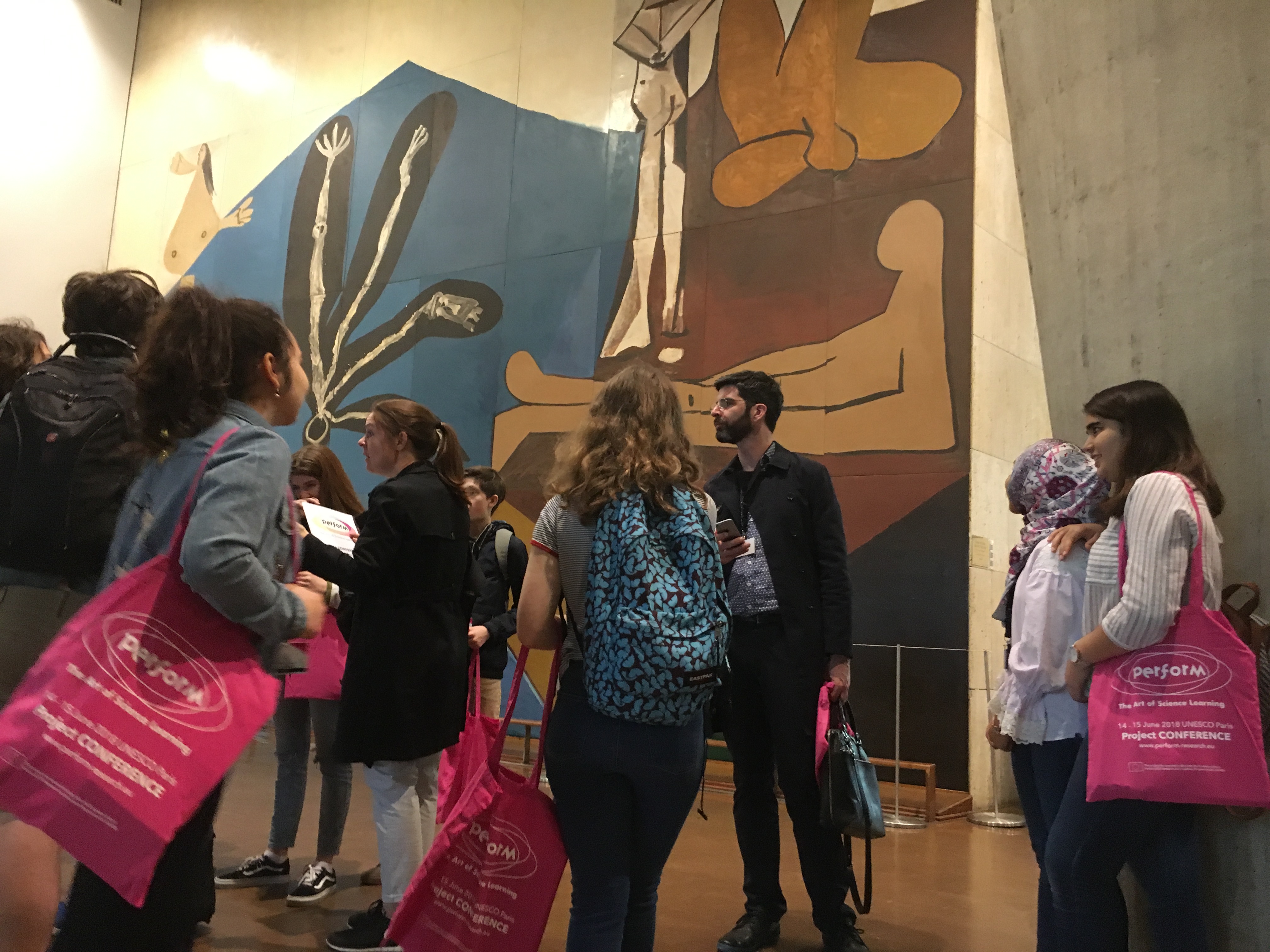 one of the peculiar aspects of the conference that aimed not only at talking about students but with the students about their learning processes in science and technology and about their future.
one of the peculiar aspects of the conference that aimed not only at talking about students but with the students about their learning processes in science and technology and about their future.
This participatory approach that has been characterizing the PERFORM project from the beginning was also the main feature of the conference who was structured in a two-day combination of performances, talks and workshops where all the participants could experience both the PERFORM approach to science learning and the project results.
A show and a conference combined
One special host, the science journalist and communicator Quentin Cooper, and three performers with a very diverse background engaged more than 400 people in the audience on the first morning of the conference. The comedian and radio speaker Robin Ince, the youtuber Léo Grasset and the medical doctor and communicator Ana Peiró transformed the stage of the room II at UNESCO headquarters in a lively theatre with their speeches about the curiosity and openness as key tools to interpret the world, the power of stories to learn science and technology and the need for recognizing and dismantling gender stereotypes in science and technology.
Drawings by Antonio Meza @antoonsparis
Three performers, each with a different public speaking style, highlighted one of the key elements explored by the PERFORM project: the power of performing skills not only to convey contents about science but to learn more about it and to motivate students, researchers and teachers to improve the dialogue with each other. As Maria Heras researcher at the Institute of Environmental Science and Technology – ICTA, Autonomous University of Barcelona – UAB, Spain, stressed in one of her intervention during the morning
“PERFORM approach has particularly contributed to foster students’ learning autonomy and organisational skills, which has been positively received by participant teachers. Theatrical exercises and reflection activities have allowed students to work in a collaborative way, in a context where students have been invited not to judge others’ ideas and propositions, but rather to share ideas within their working groups and the researchers, help each other and show respect towards others’ ideas and work.”
The power and impact of story-telling was also a red thread of both the performances during the conference and the round tables proposed to the audience. Observations developed during the PERFORM project reveal that science learning activities embedding artistic techniques in a more holistic way than simply employing an artistic approach to communicate scientific content seem to have the potential to foster students’ interest in science and related careers.
This PERFORM approach perfectly fits within the European context of the very diverse and wide set of experiences concerning science learning as the European project session involving other EU projects showed. The need for creating opportunities to share knowledge among these projects is increasingly relevant because of the amount and quality of the projects and the PERFORM Conference created a unique opportunity to do that with a lively poster session.
Each presenter made her/his LIVE poster. There were cardboards and some basic materials provided for their intervention. Some of them took a prepared structure, a draft, several ideas, and the very different final results contained diagrams, keywords, arrows, drawings, clippings, photographs, objects … anything you can think of! They marketed their project, in order to attract the people. For this, they prepared some key messages to communicate in their Posters.
No special artistic skills were needed. It was about communicating ideas live, in dialogue with the audience. It was a Conference on performing arts, and the poster session was consistent with this idea.
The workshops with students, teachers and researchers
Involving directly students in developing the activities was one of the key features of all the conference, particularly developed during the second day when students from Spanish, French and English international schools in Paris joined the four workshops developed by The Big Van Theory, the University of Bristol the Groupe Traces and the Science Made Simple team.
Four different approaches to experience what was done during the last three years in Spain, France and UK by the project team.
With the title: What does not kill us can only make us stronger! The Science Made Simple team invited the students to directly find out how PERFORM seeks to loose the street juggling, and loose the street magic, and replace them with street science! The session resulted in an insiders guide to taking science out onto the streets. Students could discover how engaging can be objects and phenomena to trigger conversation about science and technology as a cultural process.
The second workshop was run by The Big Van Theory with a Spanish school whose students could experience the power of storytelling to talk about science. Performers on stage imagine an act about the the discovery of fire and involved students to present it. The improvisation theatre structure generated a spontaneous humor context and was an opportunity to discover how humor can be a key element to create empathy with the audience you are engaging with. You can create strong communication channels, dismantle, reflects or play with stereotypes to better understand the human dimension of research and researchers. When we asked if humor is something that can be thought, the Big Van Theory team answered that some techniques, also developed during the project with teachers and students, can indeed help to improve your potential as a humourist storyteller.
Stories where also the focus of the third workshop run by the Group Traces. Through games and drama exercises, communicators and students developed improvisations around the research themes of young doctoral students, their daily lives as researchers and scientific research. The students’ vision of science was compared to that of researchers creating an opportunity to exchange, debate and play!
Among the other techniques to trigger conversations, reflections and debates around science and technology an interesting set of methods was developed and presented by the University of Bristol whose team led the fourth workshop addressed to teachers. Philosophical thinking and critical discussions can be encouraged by observing a drawing. Starting from this simple action the workshop tested the methods that were used during the project.
During the next three months a wide set of materials will be produced and presented to deeper explore all these experiences and to help teachers, students, communicators and researchers to directly experience what hundreds of participants experienced in Paris in the mid of June.

